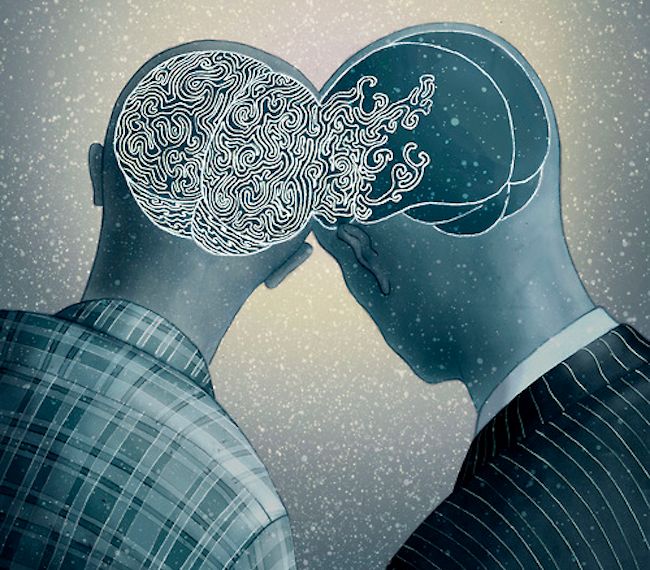
Creating a Shared Understanding How to Tap into the Collective
Collective Consciousness and the Phenomenology of Émile Durkheim Home Book Authors: Carlos Belvedere Includes in-depth discussions on sociological theory, collective intentionality, and collective consciousness Makes an original, groudbreaking contritution to the field of phenomenological sociology

PPT Emile Durkheim PowerPoint Presentation, free download ID1901778
Durkheim first introduced his theory of the collective consciousness in his 1893 book "The Division of Labor in Society". (Later, he would also rely on the concept in other books, including "Rules of the Sociological Method", "Suicide", and "The Elementary Forms of Religious Life".
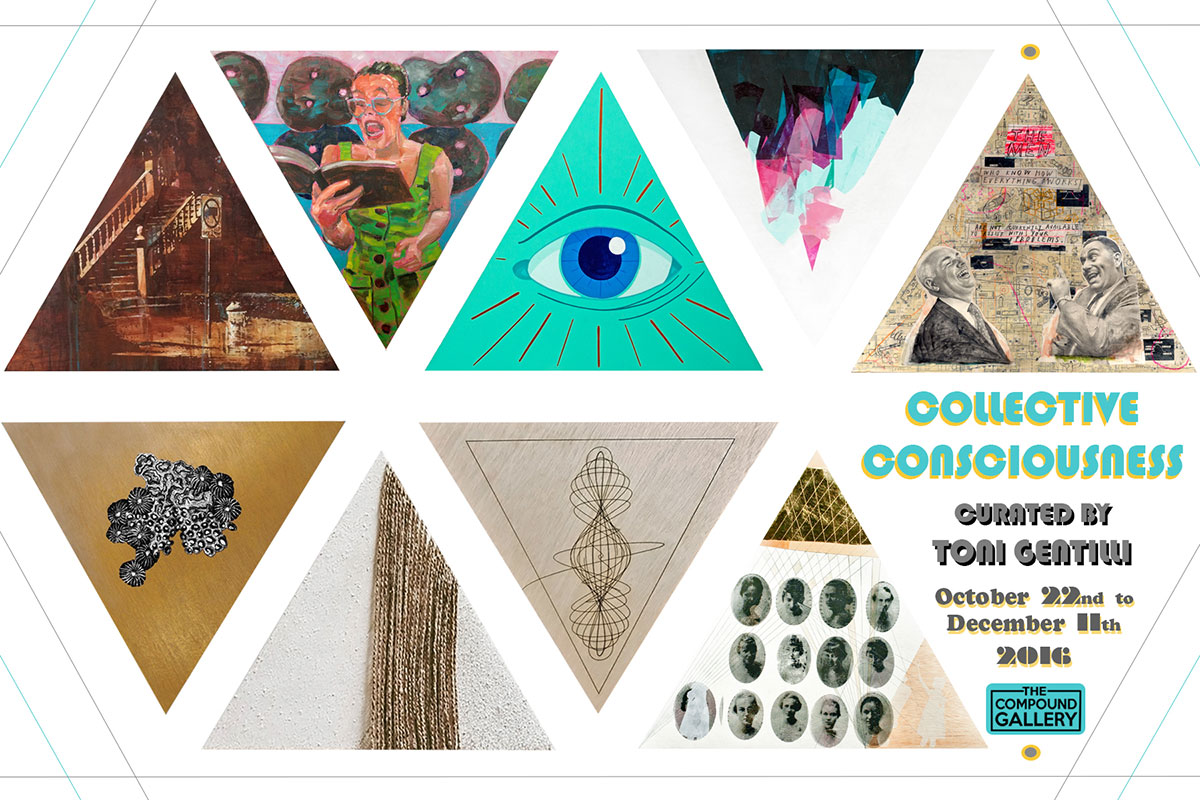
Collective Consciousness THE COMPOUND GALLERY
Durkheim's Concept of the Collective Consciousness as a 'Social Fact' Published online by Cambridge University Press: 05 October 2014 Kenneth Smith Chapter Get access Share Cite Summary
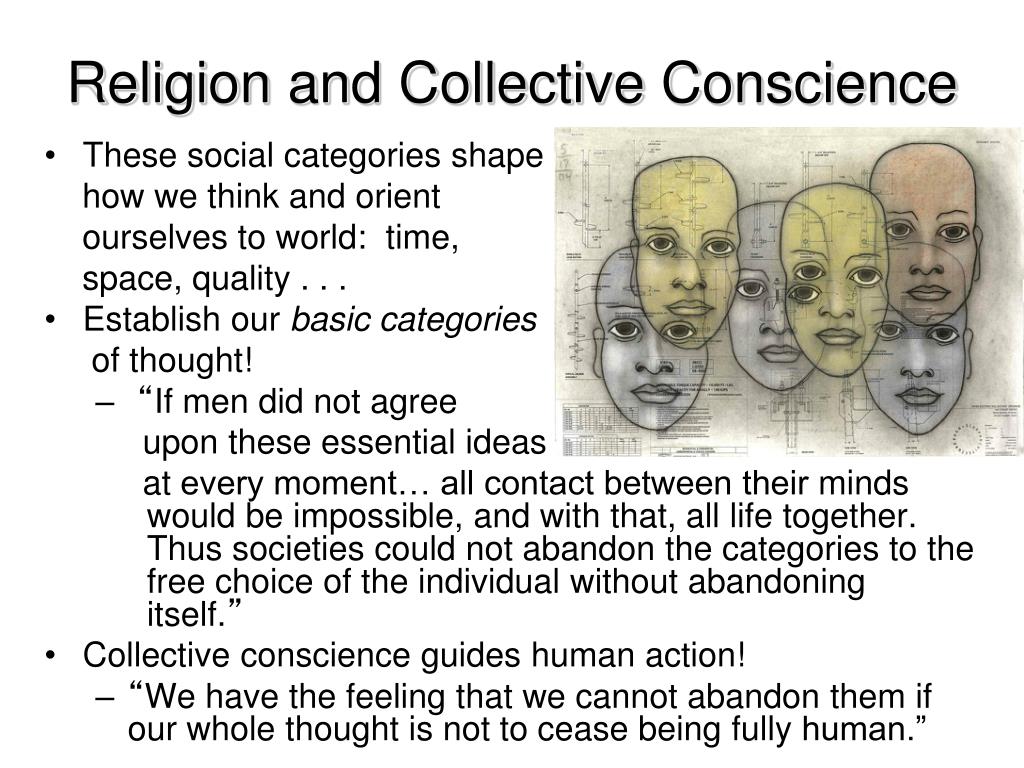
PPT The Sociology of Emile Durkheim PowerPoint Presentation, free
The concept of a 'conscience collective' (collective consciousness) was first proposed by French sociologist Émile Durkheim in 1893, as a shared understanding of morals and social norms in groups. Durkheim analysed how societies progressed through certain stages of development.
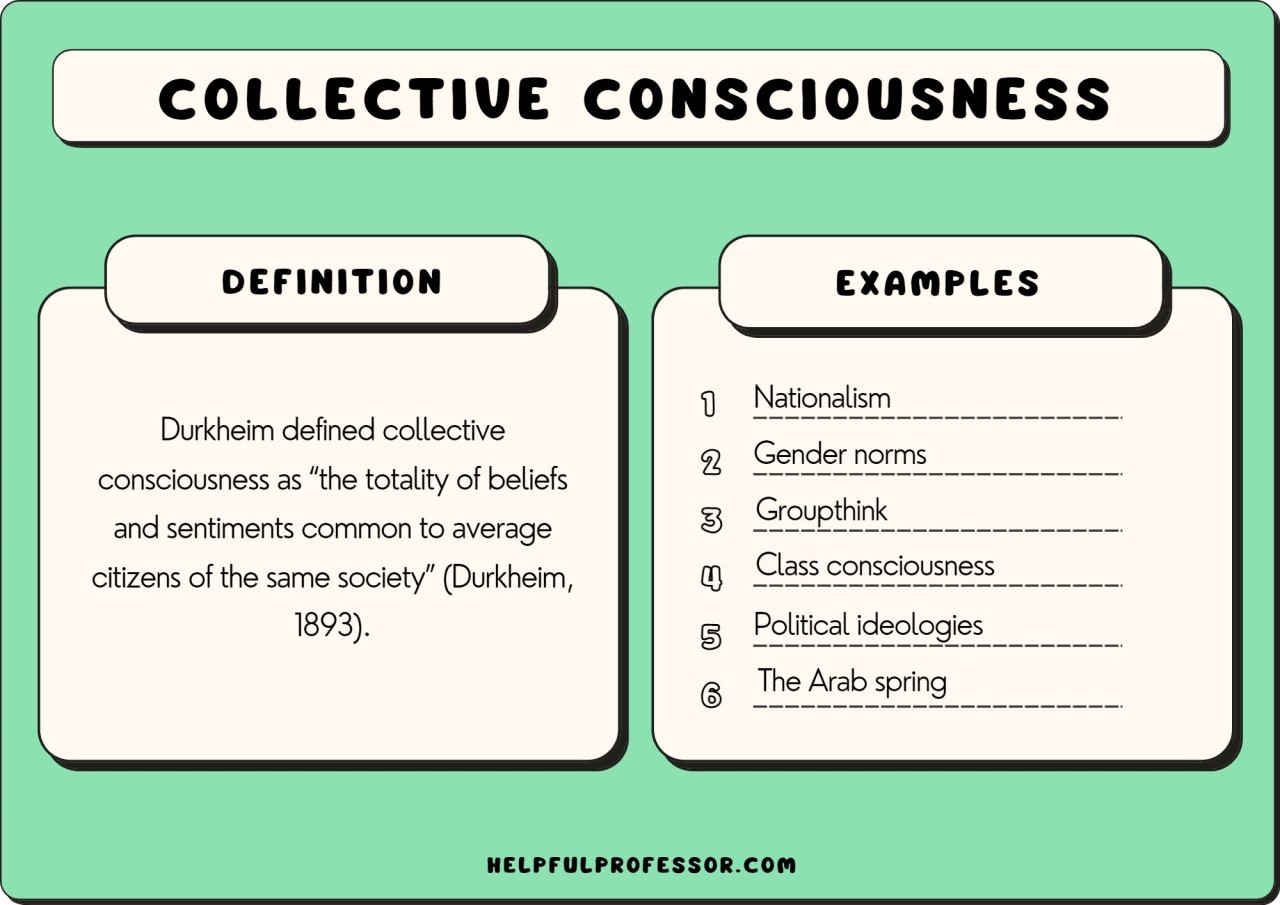
Collective Consciousness (Definition and 12 Examples)
The concept of a ' conscience collective ' (collective consciousness) was first proposed by French sociologist Émile Durkheim in 1893, as a shared understanding of morals and social norms in groups. Durkheim analysed how societies progressed through certain stages of development.

Death Penalty, India's Collective Conscience and Durkheim Academike
Collective Consciousness. Durkheim's concept of collective consciousness is another key component of his theory of social order. He argued that collective consciousness refers to the shared beliefs, values, and attitudes that are held by members of a society and that these shared beliefs form the basis for social cohesion.

PPT SOC4044 Sociological Theory Emile Durkheim PowerPoint
Collective consciousness, collective conscience, or collective conscious ( French: conscience collective) is the set of shared beliefs, ideas, and moral attitudes which operate as a unifying force within society. [1] In general, it does not refer to the specifically moral conscience, but to a shared understanding of social norms. [2]

EMILE DURKHEIM Theory of Collective Conscience. YouTube
This concept, commonly referred to by sociologists as the "collective consciousness" or "conscience collective," exemplifies the crucial role that the social plays in human behavior. While theorists disagree about the ultimate role of the collective consciousness in Durkheim's overall work, the idea of such an entity still provokes.
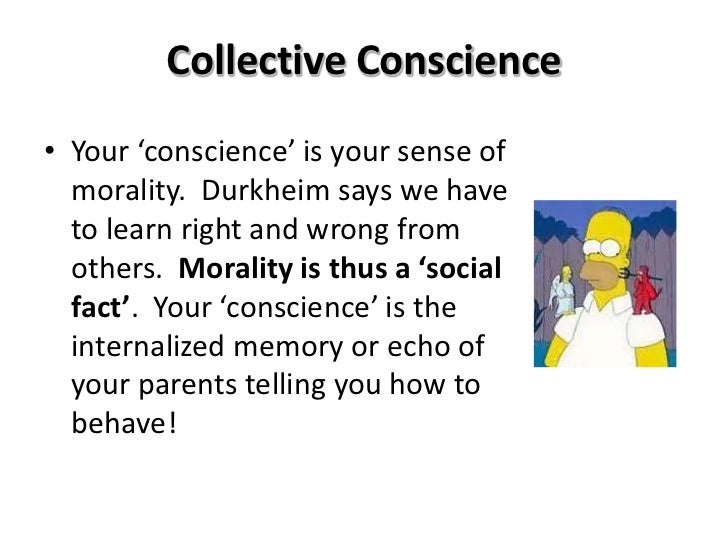
Emile Durkheim
Some terms that he coined, such as "collective consciousness", are now also used by laypeople. [6] Biography Early life and heritage David Émile Durkheim was born 15 April 1858 in Épinal, Lorraine, France, to Mélanie (Isidor) and Moïse Durkheim, [7] [8] coming into a long lineage of devout French Jews.

PPT Emile Durkheim PowerPoint Presentation, free download ID1901778
Emile Durkheim Collective Consciousness Theory by kdkasi | Jun 28, 2019 | Emile Durkheim Collective Consciousness Theory Emile Durkheim is among one of the founding fathers of sociology. In 1983, he presented and pioneered the concept of collective consciousness in his book "The Division of Labor in Society".
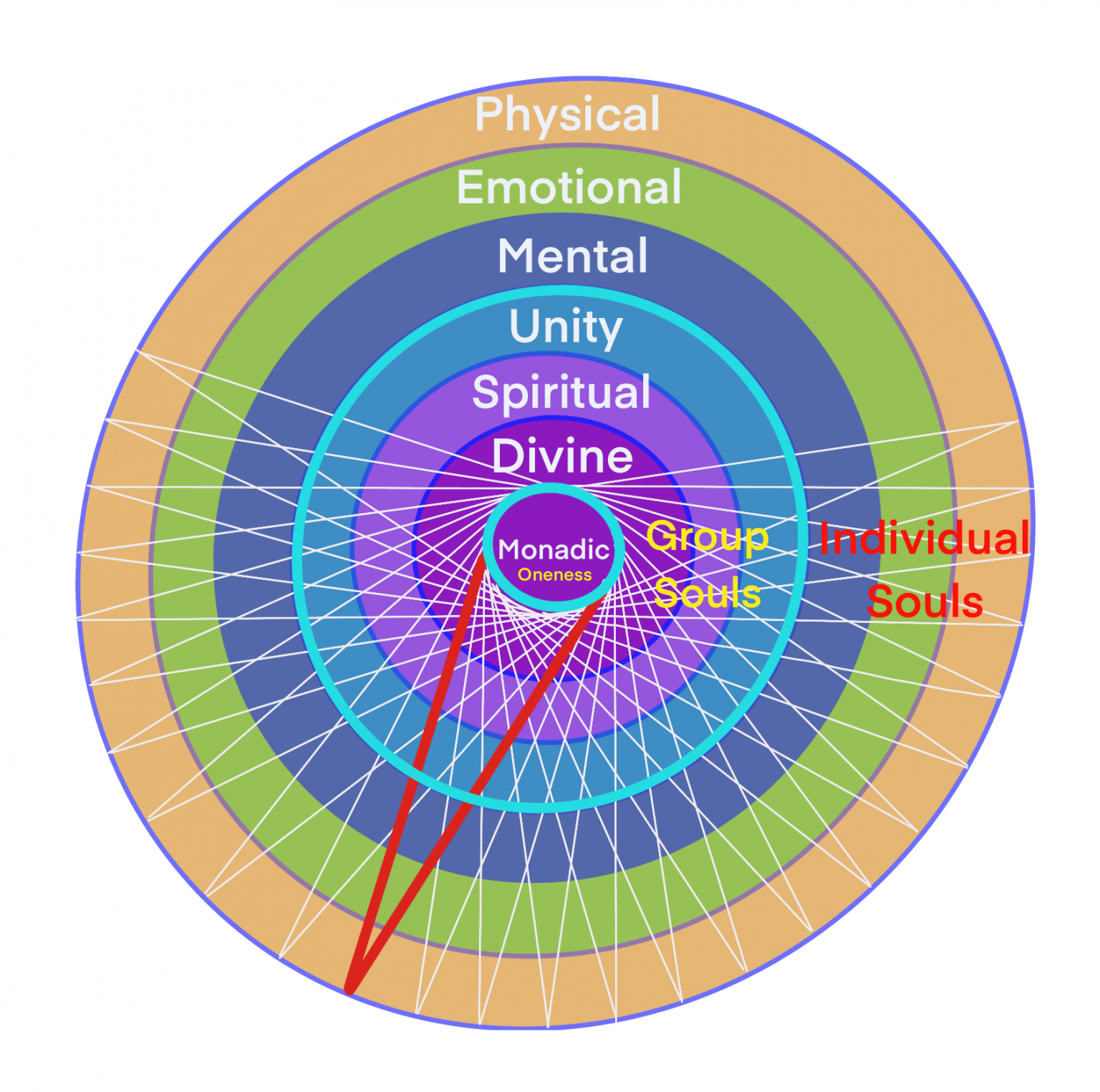
21. COLLECTIVE CONSCIOUSNESS & STAGES OF DEVELOPMENT Adventures of
One of the most important contributions to the discipline of sociology was Emile Durkheim's theoretical discussion of the collective conscience. For Durkheim, it was the collective conscience—the common ways of defining the world, as well as the common moral bond between people—that provided the initial foundation for social solidarity. It was the glue that kept society organized and.
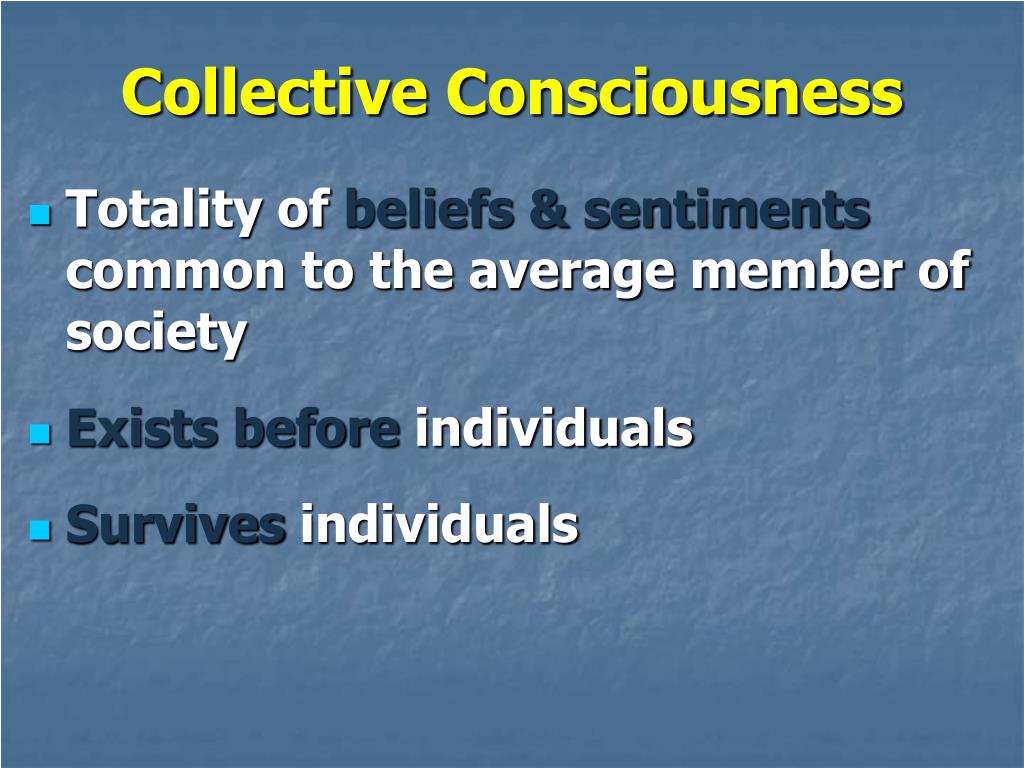
PPT Emile Durkheim (18581917) PowerPoint Presentation, free download
These come together in Durkheim's l'âme collective (collective mind). This concept, commonly referred to by sociologists as the "collective consciousness" or "conscience collective," exemplifies the crucial role that society plays in human behavior.
.jpg)
Émile Durkheim and the Collective Consciousness of Society (Paperback
This paper gives an overview of Durkheim's ideas concerning knowledge in the broad sense in the period indicated It shows that the notion of collective consciousness was abandoned, and the principle of morphological determinism was retained, largely for rhetorical purposes.

Durkheim and Collective Conscience YouTube
In Part I of this book I have attempted to provide an authoritative account of Durkheim's usage of the concept of the (or as I think we may now say, a) common or collective consciousness of society. In order to do this I have outlined in some detail Durkheim's general concept of morality, as explained by him in his still relatively little.

PPT Emile Durkheim PowerPoint Presentation, free download ID1191341
Collective consciousness seems then to condemn Durkheim's sociology as such, insofar as it rests on an abusive dichotomy of the individual and the collective, according to a vision formerly criticized in light of Marx's dialectics, as today with Tarde's imitation ( Deleuze 1986; Latour 2002 ).
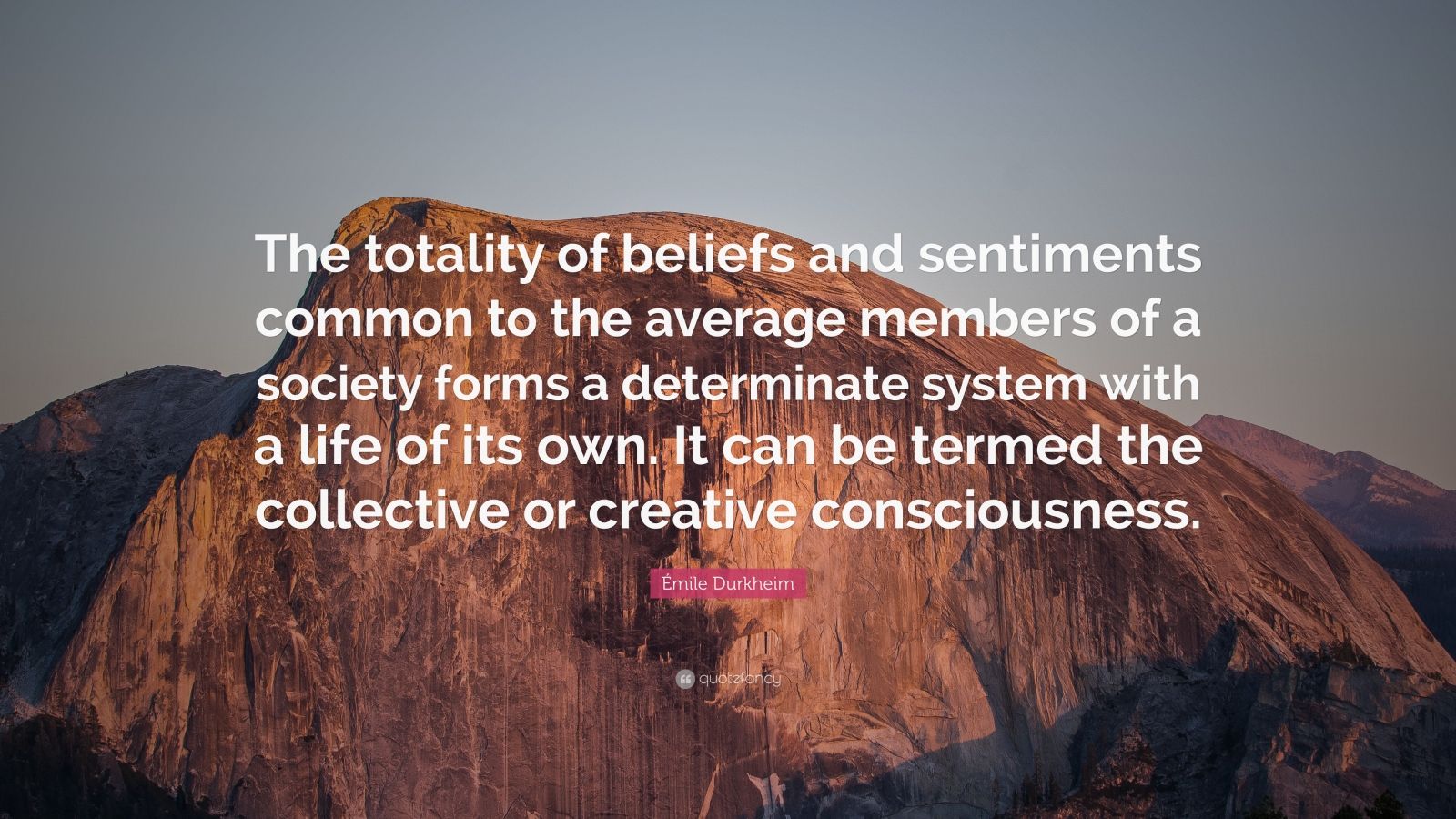
Émile Durkheim Quote “The totality of beliefs and sentiments common to
Durkheim believed that society exerted a powerful force on individuals. People's norms, beliefs, and values make up a collective consciousness, or a shared way of understanding and behaving in the world. The collective consciousness binds individuals together and creates social integration. For Durkheim, the collective consciousness was.